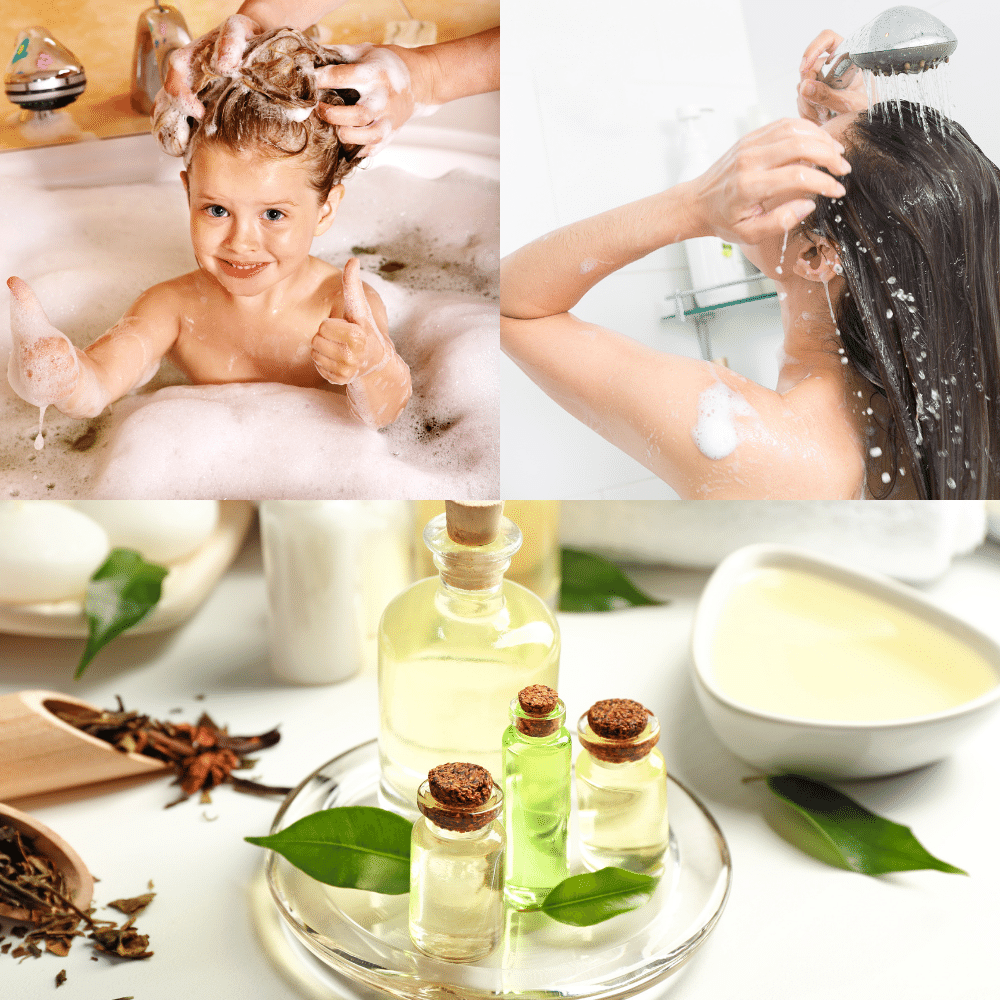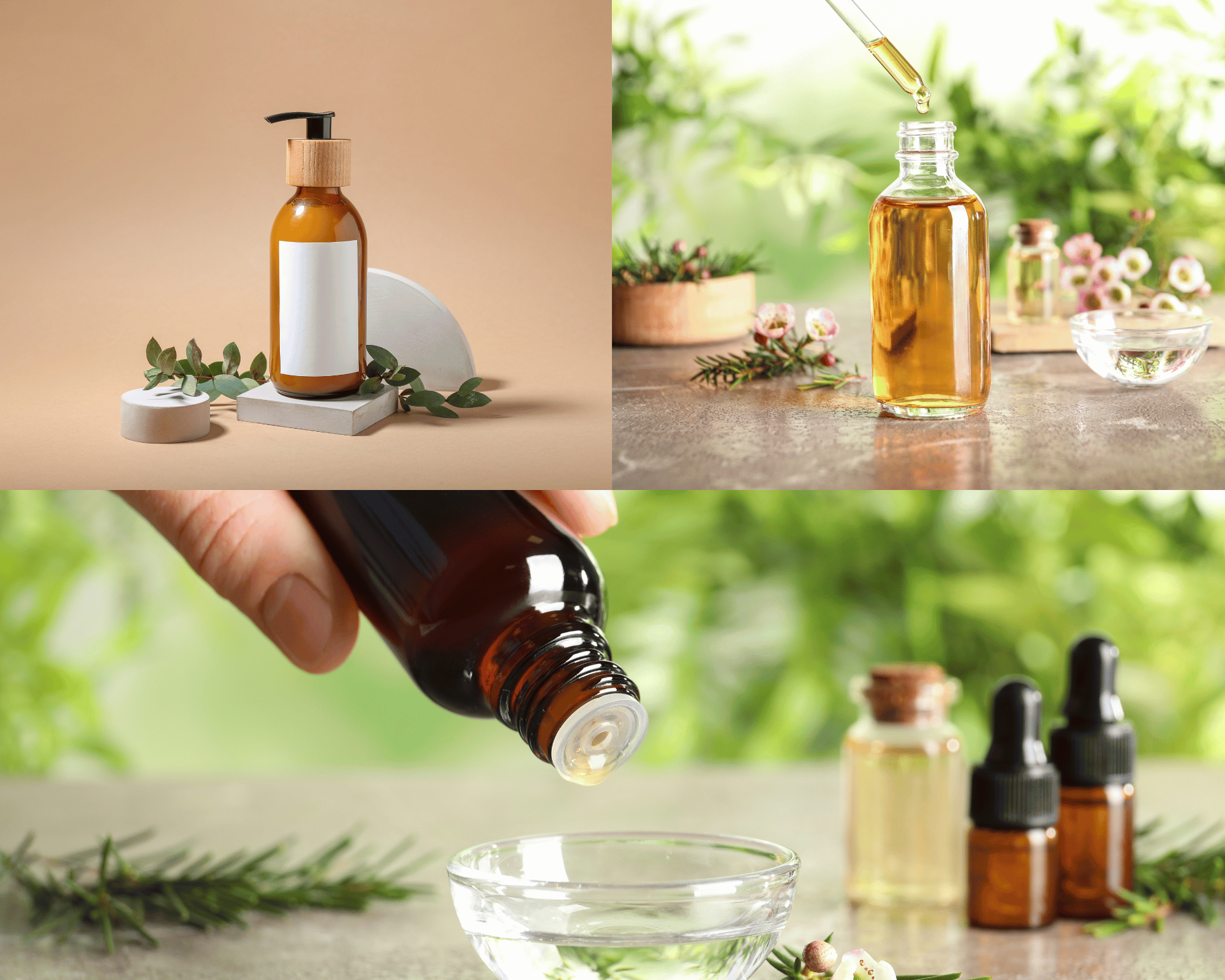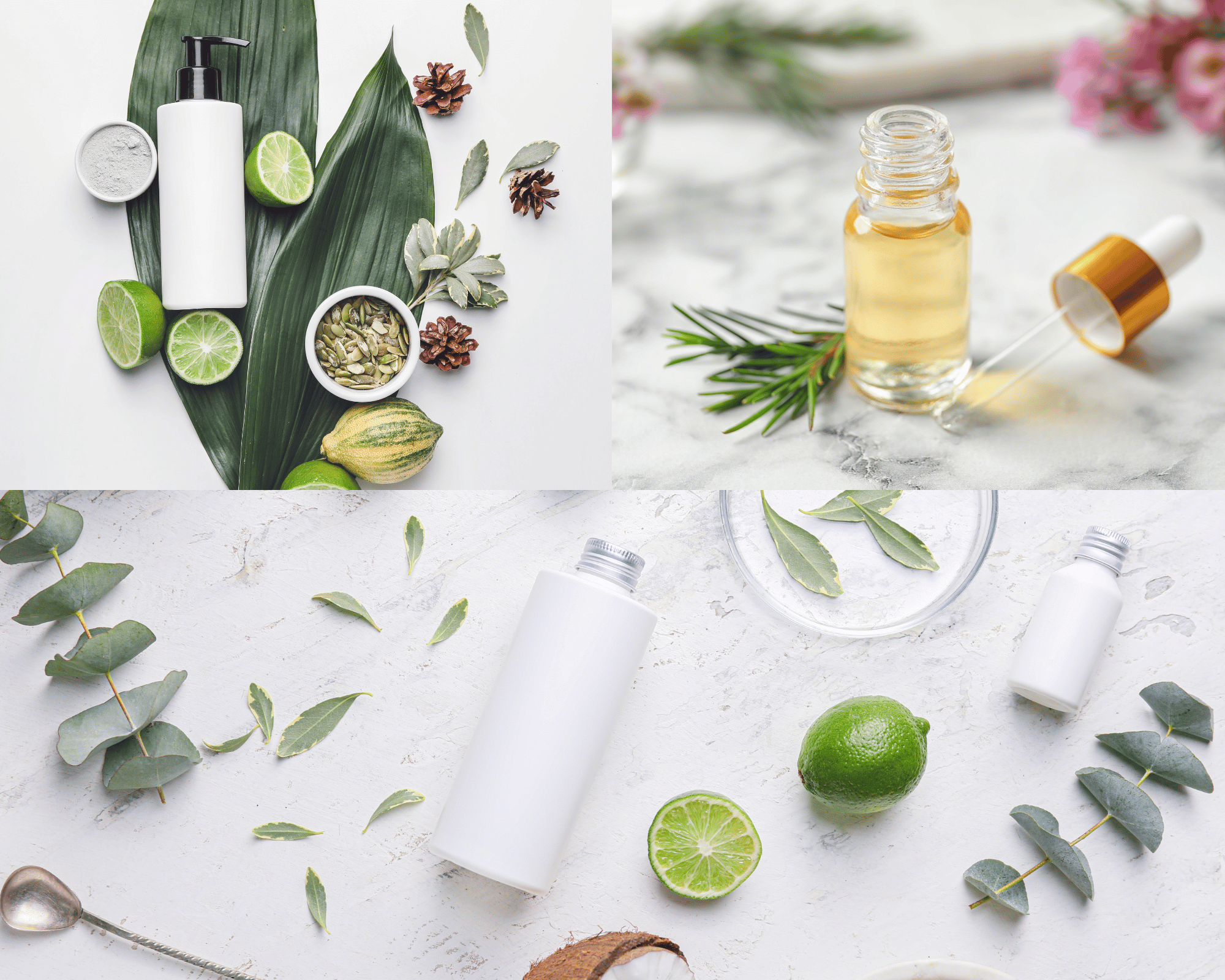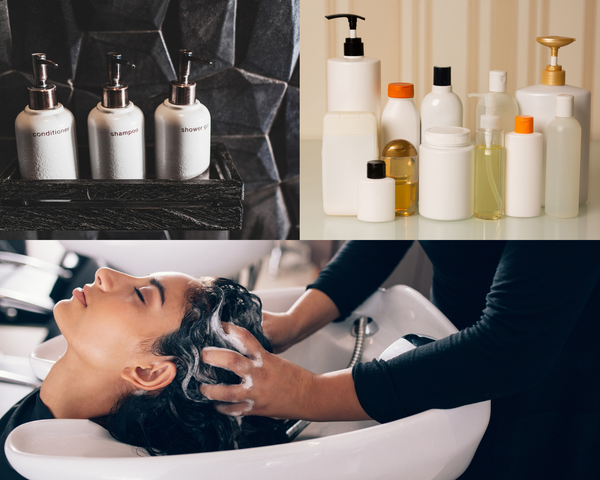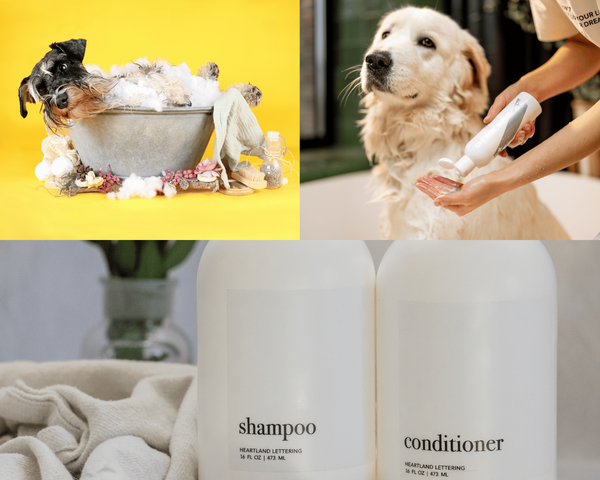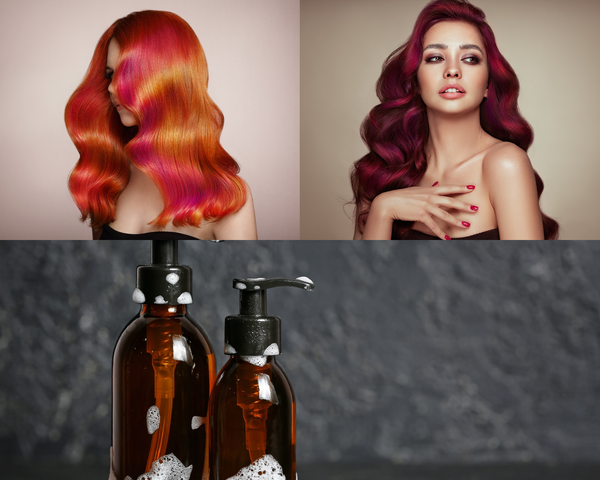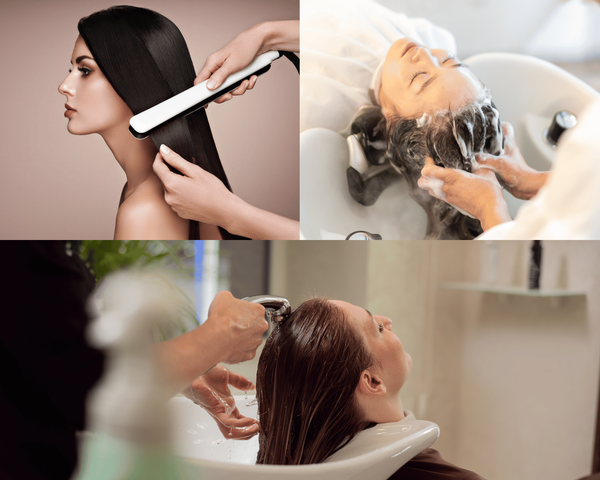Tea tree oil shampoo is a popular choice for those looking to improve their hair and scalp health. Derived from the leaves of the Melaleuca alternifolia plant, tea tree oil has natural antifungal and antibacterial properties. This makes it an excellent ingredient for combating dandruff, scalp irritation, and even lice. But how do you use tea tree oil shampoo effectively? Let's dive into the details.
Key Takeaways:
- Tea tree oil shampoo offers numerous benefits for hair and scalp health.
- Proper application techniques can maximize the effectiveness of tea tree oil shampoo.
- Daily use of tea tree oil shampoo can help maintain a healthy scalp and hair.
Introduction to Tea Tree Oil Shampoo
Tea tree oil shampoo is a popular choice for those looking to improve their hair and scalp health. Derived from the leaves of the Melaleuca alternifolia plant, tea tree oil has natural antifungal and antibacterial properties. This makes it an excellent ingredient for combating dandruff, scalp irritation, and even lice. But how do you use tea tree oil shampoo effectively? Let's dive into the details.
Benefits of Tea Tree Oil Shampoo
Tea tree oil shampoo is known for its ability to cleanse the scalp and hair thoroughly. Its antifungal properties help in reducing dandruff and preventing scalp infections. Additionally, tea tree oil can soothe an itchy scalp and reduce inflammation, making it a great choice for those with sensitive skin.
Another significant benefit of tea tree oil shampoo is its ability to promote hair growth. By unclogging hair follicles and nourishing the roots, it can help in reducing hair fall and encouraging new hair growth. This makes it a versatile product for anyone looking to improve their hair health.
Choosing the Right Tea Tree Oil Shampoo
When selecting a tea tree oil shampoo, it's essential to look for a product that contains a high concentration of tea tree oil. Check the ingredient list to ensure that tea tree oil is one of the primary components. Additionally, opt for shampoos that are free from sulfates and parabens, as these chemicals can strip the hair of its natural oils and cause dryness.
It's also beneficial to choose a tea tree oil shampoo that includes other natural ingredients like aloe vera, peppermint, or lavender. These ingredients can enhance the soothing and moisturizing effects of the shampoo, providing a more comprehensive hair care solution.
Preparing Your Hair for Tea Tree Oil Shampoo
Before applying tea tree oil shampoo, it's crucial to prepare your hair properly. Start by thoroughly wetting your hair with warm water. This helps to open up the hair cuticles and allows the shampoo to penetrate more effectively. Make sure your hair is completely saturated with water before moving on to the next step.
If you have a lot of product buildup or oil in your hair, anti dandruff shampoo, consider doing a pre-wash with a gentle, clarifying shampoo. This will help to remove any excess residue and ensure that the tea tree oil shampoo can work its magic without any hindrance.
How to Apply Tea Tree Oil Shampoo
To apply tea tree oil shampoo, start by dispensing a small amount into your palm. Depending on the length and thickness of your hair, you may need to adjust the quantity. Rub your hands together to distribute the shampoo evenly before applying it to your scalp and hair.
Massage the shampoo into your scalp using your fingertips. Focus on the roots and work your way down to the ends of your hair. Ensure that you cover all areas of your scalp to maximize the benefits of the tea tree oil. This massaging action also helps to stimulate blood flow, promoting healthier hair growth.
Rinsing and Conditioning
After massaging the tea tree oil shampoo into your scalp and hair, it's time to rinse it out thoroughly. Use lukewarm water to remove all traces of the shampoo. Make sure to rinse your hair until the water runs clear, as any leftover shampoo can cause buildup and irritation.
Following the shampoo, it's essential to condition your hair to restore moisture and smoothness. Use a conditioner that complements the tea tree oil shampoo, scalp health, sensitive skin, preferably one with natural ingredients. Apply the conditioner to the mid-lengths and ends of your hair, avoiding the scalp. Leave it on for a few minutes before rinsing it out with cool water to seal the hair cuticles.
Tea Tree Oil Shampoo for Daily Use
Tea tree oil shampoo can be used daily, especially for those with oily scalps or dandruff issues. Its gentle yet effective cleansing properties make it suitable for regular use without causing dryness or irritation. However, if you have dry or sensitive hair, you may want to use it every other day to avoid over-drying your scalp.
For best results, pair your tea tree oil shampoo with a matching conditioner and other hair care products that suit your hair type. This will help to maintain a balanced and healthy scalp environment, promoting overall hair health.
Addressing Common Scalp Issues
Tea tree oil shampoo is particularly effective in addressing common scalp issues like dandruff, itchiness, and flakiness. Its antifungal properties help to eliminate the fungus that causes dandruff, while its soothing effects reduce itchiness and inflammation. Regular use of tea tree oil shampoo can significantly improve the condition of your scalp.
For those dealing with more severe scalp issues, such as psoriasis or eczema, tea tree oil shampoo can provide relief. However, it's always best to consult with a dermatologist before using any new product on sensitive or problematic skin.
Enhancing Hair Growth
One of the standout benefits of tea tree oil shampoo is its ability to enhance hair growth. By unclogging hair follicles and improving blood circulation to the scalp, it creates an optimal environment for hair growth. Regular use can lead to thicker, carrier oil, skin irritation healthier hair over time.
In addition to using tea tree oil shampoo, consider incorporating other hair growth-promoting practices into your routine. This includes maintaining a healthy diet, reducing stress, and avoiding excessive heat styling. Together, these practices can help you achieve your hair growth goals.
Preventing Hair Loss
Hair loss can be a distressing issue, but tea tree oil shampoo can help in preventing it. By keeping the scalp clean and free from infections, it reduces the risk of hair fall. Additionally, its nourishing properties strengthen the hair roots, making them less prone to breakage.
If you're experiencing significant hair loss, it's essential to identify the underlying cause. Factors like hormonal imbalances, nutritional deficiencies, and stress can all contribute to hair loss. Addressing these issues in conjunction with using tea tree oil shampoo can yield better results.
Tea Tree Oil Shampoo for Different Hair Types
Tea tree oil shampoo is versatile and can be used on various hair types, including straight, wavy, curly, and coily hair. Its gentle cleansing action makes it suitable for all hair textures, hair growth, tea tree oil products, healthy scalp, dead skin while its moisturizing properties ensure that it doesn't strip the hair of its natural oils.
For those with curly or coily hair, it's essential to follow up with a hydrating conditioner to maintain moisture levels. Additionally, consider using a leave-in conditioner or hair oil to keep your curls defined and frizz-free.
DIY Tea Tree Oil Shampoo itchy scalp
If you prefer a more natural approach, you can create your own tea tree oil shampoo at home. Start with a base of mild, sulfate-free shampoo. Add a few drops of pure tea tree oil to the shampoo and mix well. You can also add other essential oils like lavender or peppermint for added benefits.
Using a DIY tea tree oil shampoo allows you to control the ingredients and customize the formula to suit your hair needs. However, it's essential to perform a patch test before using any new product to ensure that you don't have an allergic reaction.
Storing Tea Tree Oil Shampoo best tea tree oil shampoo usage tips
Proper storage of tea tree oil shampoo is crucial to maintain its effectiveness. Keep the shampoo in a cool, dry place away from direct sunlight. Exposure to heat and light can degrade the tea tree oil, reducing its potency.
Ensure that the shampoo bottle is tightly sealed after each use to prevent contamination. If you notice any changes in the color, texture, essential oils, treat dandruff, or smell of the shampoo, it's best to discard it and get a new bottle.
Potential Side Effects
While tea tree oil shampoo is generally safe for most people, it can cause allergic reactions in some individuals. If you experience redness, itching, a few drops, tree oil, tea tree oils, coconut oil or swelling after using the shampoo, discontinue use immediately and consult a healthcare professional.
It's also important to avoid getting tea tree oil shampoo in your eyes, as it can cause irritation. If this happens, rinse your eyes thoroughly with water and seek medical attention if necessary.
Summary
Tea tree oil shampoo is a powerful tool for maintaining a healthy scalp and hair. Its antifungal, antibacterial, and soothing properties make it an excellent choice for addressing common scalp issues and promoting hair growth. By following the proper application techniques and incorporating it into your daily hair care routine, you can enjoy the numerous benefits that tea tree oil shampoo has to offer.
FAQ
1. Can I use tea tree oil shampoo every day?
Yes, tea tree oil shampoo can be used daily, especially for those with oily scalps or dandruff issues. However, if you have dry or sensitive hair, you may want to use it every other day to avoid over-drying your scalp.
2. Is tea tree oil shampoo safe for color-treated hair?
Tea tree oil shampoo is generally safe for color-treated hair, but it's essential to choose a product that is sulfate-free to prevent color fading. Always perform a patch test before using any new product on color-treated hair.
3. Can tea tree oil shampoo help with hair growth?
Yes, tea tree oil shampoo can help with hair growth by unclogging hair follicles and improving blood circulation to the scalp. Regular use can lead to thicker, healthier hair over time.
